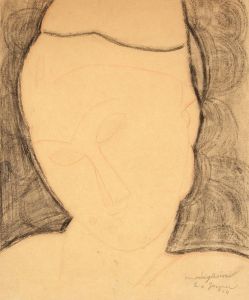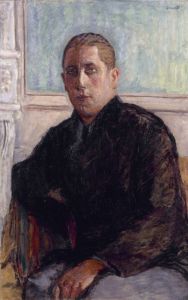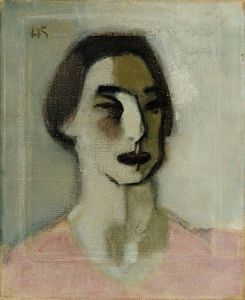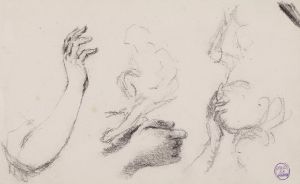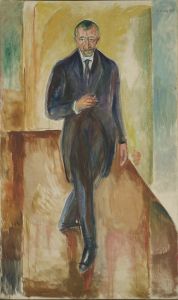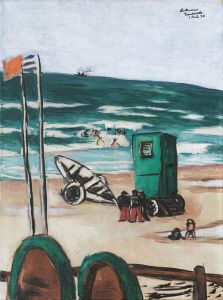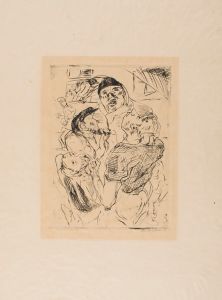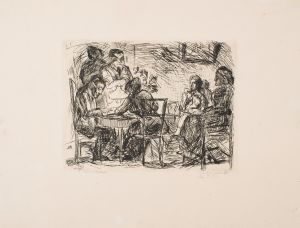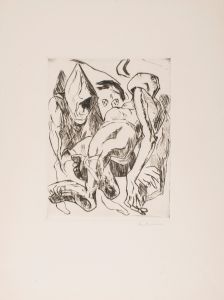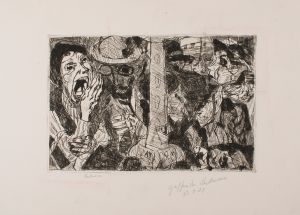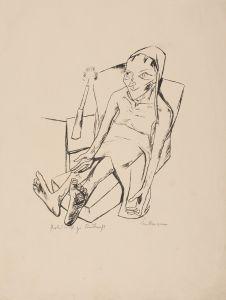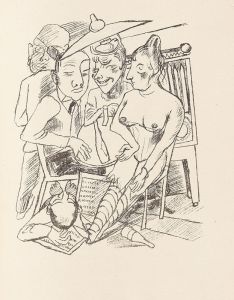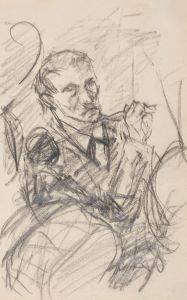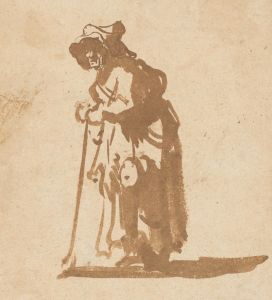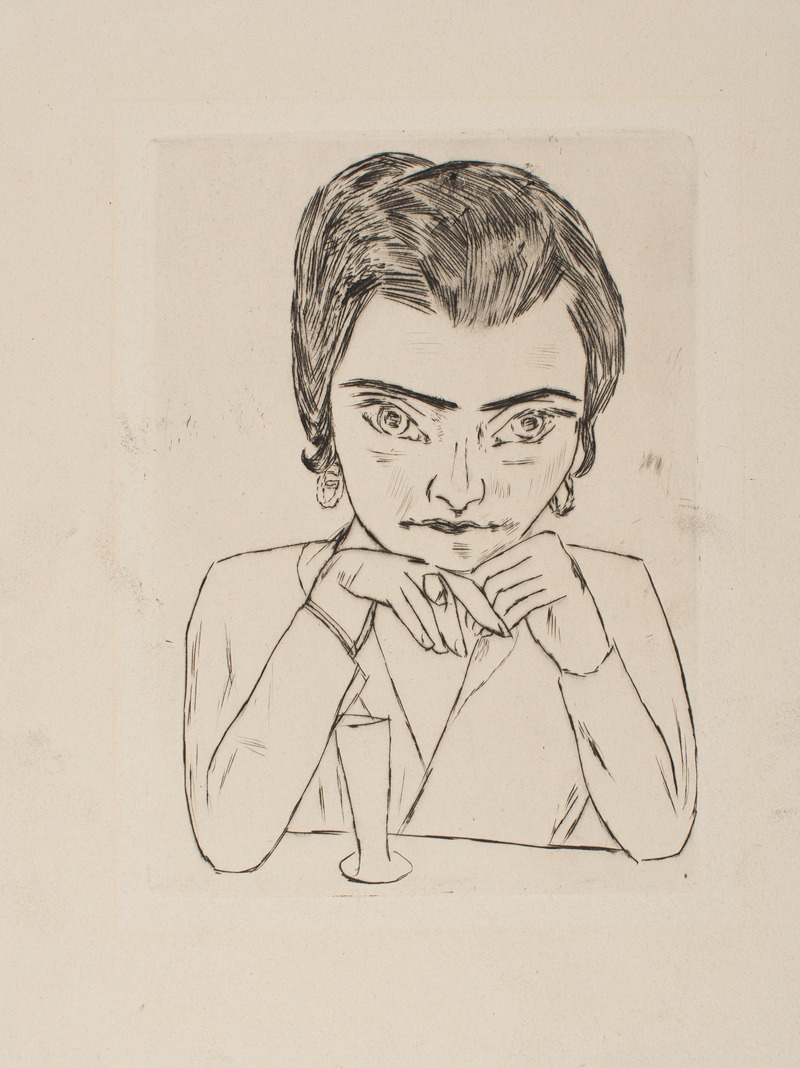
Portrait of Naila leaning on her Arms, with Glass
A hand-painted replica of Max Beckmann’s masterpiece Portrait of Naila leaning on her Arms, with Glass, meticulously crafted by professional artists to capture the true essence of the original. Each piece is created with museum-quality canvas and rare mineral pigments, carefully painted by experienced artists with delicate brushstrokes and rich, layered colors to perfectly recreate the texture of the original artwork. Unlike machine-printed reproductions, this hand-painted version brings the painting to life, infused with the artist’s emotions and skill in every stroke. Whether for personal collection or home decoration, it instantly elevates the artistic atmosphere of any space.
"Portrait of Naila leaning on her Arms, with Glass" is a painting by the German artist Max Beckmann, a prominent figure in the Expressionist movement. Beckmann, born in 1884 in Leipzig, Germany, is known for his bold and expressive style, which often incorporates elements of modernism and realism. His works frequently explore themes of human experience, often reflecting the tumultuous socio-political landscape of his time.
Max Beckmann's career spanned several decades, during which he produced a significant body of work that includes paintings, drawings, and prints. He is often associated with the New Objectivity movement, which emerged in Germany in the 1920s as a reaction against the emotional intensity of Expressionism. Beckmann's style is characterized by its strong lines, vivid colors, and complex compositions, often depicting figures in introspective or enigmatic poses.
"Portrait of Naila leaning on her Arms, with Glass" exemplifies Beckmann's unique approach to portraiture. While specific details about the painting's creation, such as its exact date and the identity of the subject, Naila, are not widely documented, the work is consistent with Beckmann's exploration of the human condition. His portraits often convey a sense of psychological depth, capturing the inner life of his subjects through their expressions and body language.
In this painting, Beckmann employs his signature use of bold outlines and a rich color palette. The composition likely features Naila in a contemplative pose, leaning on her arms with a glass nearby. This setup may suggest an intimate moment, inviting viewers to ponder the relationship between the subject and her surroundings. Beckmann's ability to convey emotion and narrative through minimalistic yet powerful imagery is a hallmark of his artistic style.
Throughout his career, Beckmann's work was influenced by the socio-political upheavals of the early 20th century, including World War I and the rise of the Nazi regime. His art often reflects a sense of dislocation and existential inquiry, themes that resonate in many of his portraits. Despite facing persecution by the Nazis, who labeled his work as "degenerate art," Beckmann continued to create and exhibit his art, eventually emigrating to the United States in 1947.
Max Beckmann's legacy as an artist is marked by his ability to capture the complexities of human emotion and experience. His portraits, including "Portrait of Naila leaning on her Arms, with Glass," remain significant for their introspective quality and their reflection of the broader cultural and historical context of the time. Beckmann's work continues to be studied and appreciated for its contribution to modern art and its enduring exploration of the human psyche.
While specific information about "Portrait of Naila leaning on her Arms, with Glass" may be limited, the painting is an example of Beckmann's broader artistic achievements and his impact on the world of art. His work remains influential, and his portraits, in particular, offer a window into the emotional and psychological landscapes of his subjects, making them timeless pieces of art history.





